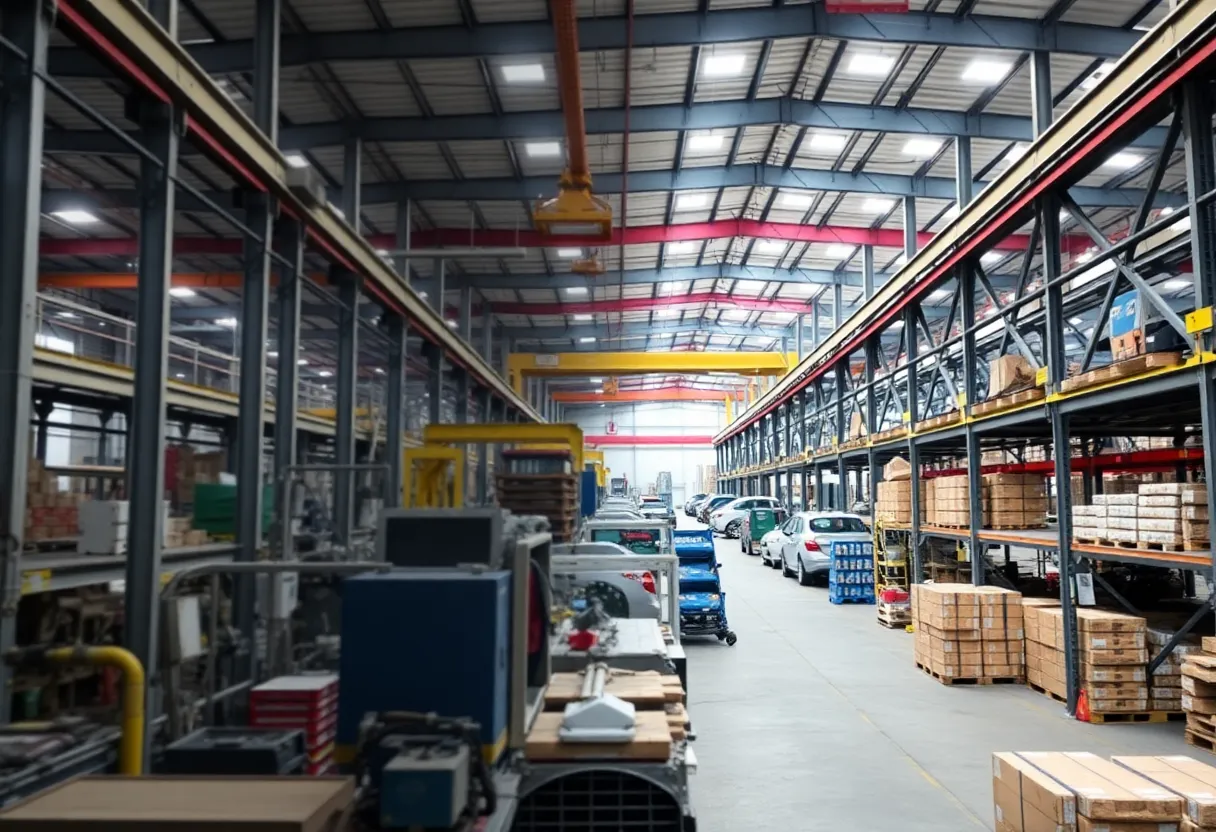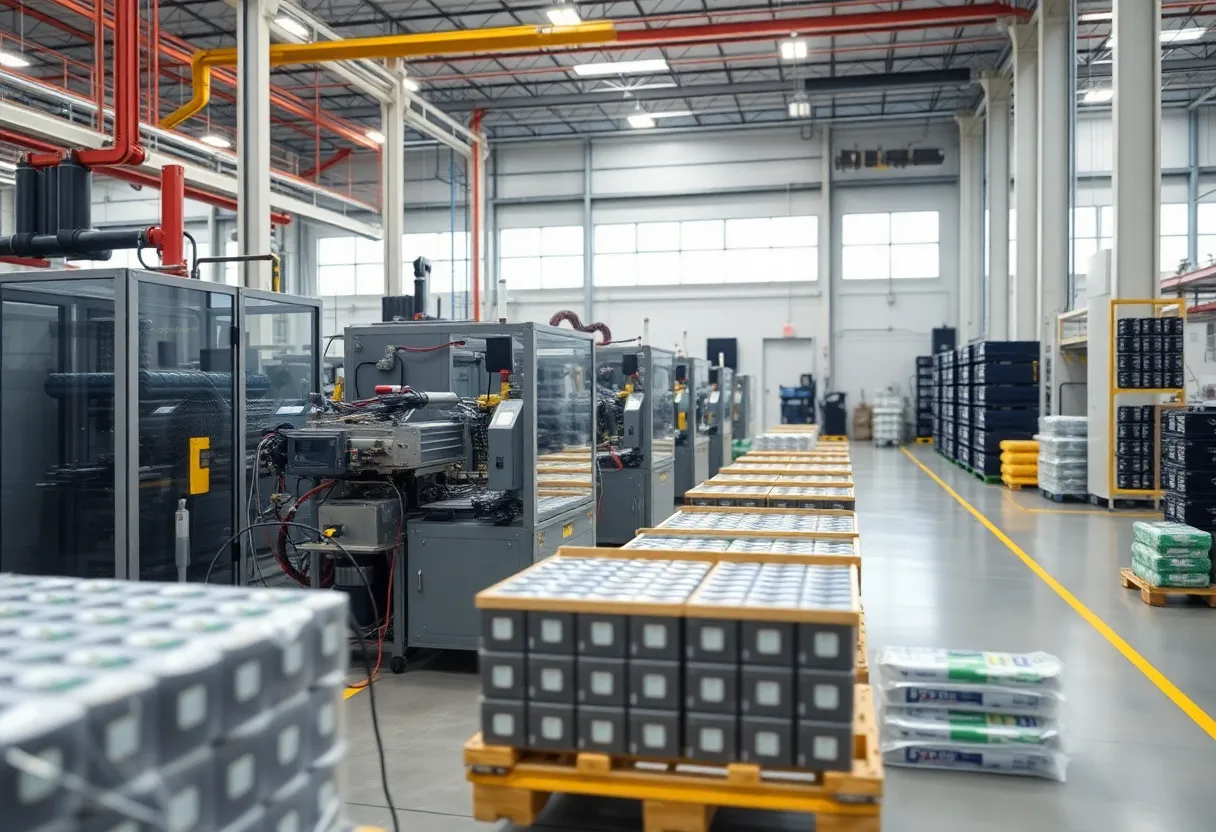News Summary
County Councilman David Britt of Spartanburg County raises alarms over President Trump’s aluminum and steel tariffs, suggesting they may harm local manufacturing and construction. Experts are warning about potential job losses and increased consumer prices. While some businesses adapt, the broader impact remains uncertain, creating concerns among local leaders and industry representatives about the health of the regional economy.
Spartanburg County, South Carolina – County Councilman David Britt has voiced significant concerns regarding President Trump’s implementation of tariffs on aluminum and steel imports, expressing the belief that the President is receiving “bad advice” on this economic policy. As the chairman of the council’s economic development committee, Britt anticipates that the recently imposed 25% tariffs will adversely affect local manufacturing and construction businesses, leading to increased costs for consumers.
Britt specifically notes that companies involved in manufacturing, construction, and firms investing in steel products will face challenges stemming from these tariffs. He warns that as companies grapple with higher costs, they may either absorb these expenses or forgo making new purchases altogether, creating a risk of job losses in the region and adding pressure on consumer prices.
Concerns are echoed by economic experts, such as Carlos Phillips, President of the Greenville Chamber of Commerce, who explains that tariffs can disrupt supply chains and escalate production costs across various sectors. This complexity underscores the potential ripple effects of the tariffs on local economies, particularly in manufacturing-heavy regions like the Upstate.
In a broader context, Trump has announced plans to develop a comprehensive strategy aimed at restoring fairness in U.S. trade relationships, amid criticisms that his tariff policies could trigger a costly trade war. Proponents of tariffs argue they are effective negotiating tools, while critics highlight the risk of retaliatory actions from other countries affecting U.S. industries.
Experts like William Hauk caution that politically favorable tariffs must be implemented strategically to minimize adverse consumer impacts. For example, while specific tariffs may protect domestic producers—in some cases lessening the overall burden on consumers—broad applications like those currently in place on steel and aluminum could destabilize crucial industries such as auto, aerospace, and construction.
Industry leaders have expressed their apprehensions as well. Steve Wilson from BMW Manufacturing has criticized the tariffs, suggesting they hinder innovation and violate free trade principles. Reports indicate that suppliers are beginning to stockpile raw materials in anticipation of price hikes, as noted by David Wise of Harper Construction.
Conversely, some businesses like SC Steel are witnessing increased order volumes due to speculation about rising steel prices, highlighting a mixed impact on different sectors. Historically, previous steel tariffs in 2018 resulted in consumer price increases and significant job losses, illustrating the potential consequences of such trade policies.
The local agricultural sector has also suffered due to retaliatory tariffs imposed by other nations, notably impacting businesses in South Carolina. Despite prior threats to impose tariffs on Canada and Mexico, Trump paused these plans after receiving concessions, demonstrating the fluidity of trade negotiations.
Concerns among business leaders persist, rooted in market uncertainty stemming from tariff-related discussions, which inhibit long-term strategic planning. Britt underlined that the economic prosperity of Spartanburg is contingent on partnerships and free trade, inviting Trump to gain a more profound understanding of the region’s economic landscape.
Disagreements extend to Trump’s senior trade advisor, Peter Navarro, who has criticized the BMW business model that integrates foreign components. In response, Britt defended BMW’s role in the Upstate economy, emphasizing its employment of 11,000 workers locally and its substantial investments in the region, which have notably contributed to regional growth. Statements from organizations like OneSpartanburg, Inc. and the Greenville Chamber of Commerce reinforce BMW’s significance in driving economic development.
Defending the economic contributions of BMW, local politicians, including Senator Lindsey Graham and Rep. William Timmons, have publicly supported the automaker, underscoring its importance in job creation amidst the backdrop of Trump’s contentious remarks about foreign automakers. As local automotive firms, like Wakefield Automotive Group in Spartanburg, brace for the impact of impending tariffs, they are experiencing heightened customer interest, indicating potential shifts in the automotive market.
Yet, experts have warned that tariffs could lead to elevated prices for imported vehicles and parts, adversely impacting both manufacturers and consumers alike. Britt advocates for effective negotiations with trade allies as a more beneficial approach compared to expansive tariff measures, cautioning that the local economy’s health depends on sound trade practices.
Deeper Dive: News & Info About This Topic
- The New York Times: South Carolina Manufacturing Tariffs
- Wikipedia: Tariff
- Go Upstate: Upstate Leaders React to Tariffs
- Google Search: South Carolina Tariffs
- Greenville Online: Trump’s Auto Tariffs
- Google Scholar: Tariffs Impact on Manufacturing
- BMW Blog: BMW Adding Shifts at Spartanburg Plant
- Encyclopedia Britannica: Trade Agreement
- Fox Carolina: Concerns Over Tariffs and Budget
- Google News: BMW Spartanburg County

Author: STAFF HERE FLORENCE WRITER
FLORENCE STAFF WRITER The FLORENCE STAFF WRITER represents the experienced team at HEREFlorence.com, your go-to source for actionable local news and information in Florence, Florence County, and beyond. Specializing in "news you can use," we cover essential topics like product reviews for personal and business needs, local business directories, politics, real estate trends, neighborhood insights, and state news affecting the area—with deep expertise drawn from years of dedicated reporting and strong community input, including local press releases and business updates. We deliver top reporting on high-value events such as the Florence Festival of Lights, Pee Dee Pride, and agricultural expos at the Florence Center. Our coverage extends to key organizations like the Florence Regional Chamber of Commerce and the Pee Dee Area Council of Governments, plus leading businesses in healthcare and retail that power the local economy such as McLeod Health and Pee Dee Electric Cooperative. As part of the broader HERE network, including HERECharleston.com, HEREColumbia.com, HEREGreenville.com, and HEREHiltonHead.com, we provide comprehensive, credible insights into South Carolina's dynamic landscape.





